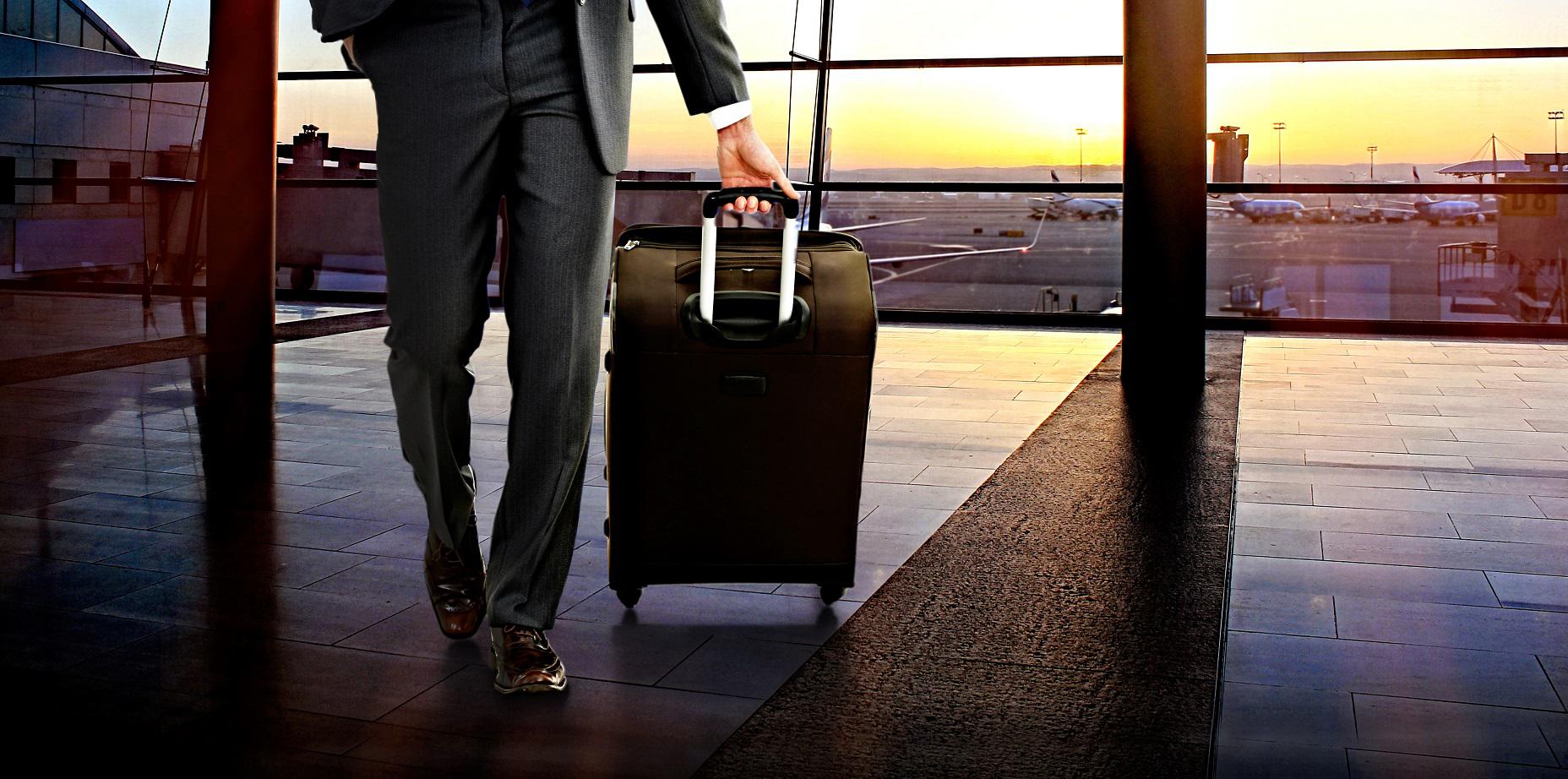You don’t need a crystal ball to be able to predict that business travel costs are going to continue to rise further over the next 12-18 months.
With the current global financial climate and no end in sight for the current main influences, it’s difficult to envision a time when costs are likely to stabilize.
But just how much do we predict business travel industry costs will rise? Will price rises be across the board or concentrated in particular areas? Will both short-term lodging and travel costs increase? At the same rate?
Is it just global influences driving price rises or is there more to it than that?
All these questions and more are occupying travel managers and accounts departments across the country right now.
While we don’t have all the answers, we can help outline what we think the next 12-18 months look like for the business travel industry.
We will be using a combination of the 2023 Global Business Travel Forecast, published today by CWT and our own experience to shed some light on what the future may hold.
The headline numbers you need to know
The report makes for sober reading. Prices rises across the board with no end in sight.
Predicted price increases for key business travel areas:
| 2022 | 2023 | |
| Air fares | 48.5% | 8.45% |
| Transportation costs | 7.3% | 6.8% |
| Hotel rates | 18.2% | 8.2% |
You’ll notice huge increases for 2022 as the world emerged from lockdown and began doing business in person again.
While prices are expected to continue rising into 2023, the rates are more in line with inflation. We do not currently expect any significant jumps in rates, although that is always subject to change!
Short-term lodging
A lot of the data in the 2023 Global Business Travel Forecast refers to hotel rooms as there is much less data around for corporate housing.
From our own experience, prices for corporate housing are rising but more slowly and more steadily than hotels.
This may partly be explained by the lower running costs associated with furnished housing. Fewer staff, lower bills and generally more modest outgoings as compared to hotels.
Mortgage rates are going up of course, but not all properties are mortgaged. Some that are secured against loans use venture capital rather than traditional mortgages, so are less impacted by headline rates.
Mortgage rates continue to climb as the Fed tries to cool down the real estate market and control inflation. As it increases the federal funds rate it has a huge influence on the mortgage market.
The Mortgage Interest Rates Forecast 2022 & 2023 report shows us just how much rates have risen and have predictions of where the market might move in 2023.
Zillow Vice President of Capital Markets Paul Thomas said, “Mortgage rates are likely to be volatile in the near term as markets are pricing in the competing influences of high inflation and Federal Reserve rate hikes against increasing risks of economic slowdowns and a potential recession. Considering the current situation, we’re more likely to see higher rates by the end of the year than lower ones.”
The positive news about mortgage rates is that they are widely expected to fall in 2023. Current predictions are that they will fall to around 5.4% by Q4 2023.
Hotel room rates
As we do have data on hotel room rate rises, let’s take a look at those.
Hotel room rates fell by 13.3% in 2020 when we were in the center of the coronavirus pandemic. Demand fell through the floor and business travel, and all travel, was at a standstill.
Since then, we have seen a rise of 18.2% in 2022 once the world began doing business in person again.
We expect a rise of a further 8.2% for 2023 as inflationary pressures exert their influence across the country.
This rise in prices is partly down to rising costs but also rising demand.
Demand has accelerated both for business travel and leisure travel.
The relaxing of travel rules was a watershed moment. Tension and urgency that had built up during the pandemic and the various lockdowns was suddenly unleashed.
Both domestic and international travel experienced huge demand, which increased prices.
Add rising fuel costs, the war in Ukraine and increased costs related to getting back up to speed have all put pressure on prices.
These should all settle in 2023 but we don’t know to what extent.
Predicting any part of business is a tough ask, but given these tumultuous times, it’s even tougher.
The global financial situation and the impact of rising costs across the world can have unpredictable effects.
That’s something we just don’t have enough data to predict with any degree of accuracy right now.
The impact on international travel
It isn’t just domestic hotels that have seen price rises. According to the American Express Global Business Travel ‘Hotel Prices 2023’ report, hotel prices are up across the world.
| Destination | Price increase |
| Buenos Aires | 30% |
| Paris | 10% |
| Dublin | 8.5% |
| Sau Paolo | 7.7% |
| Amsterdam | 7.5% |
| Frankfurt | 7.5% |
Other countries are likely to be in line with Amsterdam and Frankfurt as the south American destinations are heavily influenced by local inflationary pressures.
Business air travel
The business air travel industry has also had a tumultuous time. Airlines were largely grounded during the pandemic and staff furloughed or laid off.
That explosion in demand then caused its own problems. Airlines and airports had to rush to get back up to speed, hire more staff, train them and begin earning money.
Jet fuel is also more expensive than ever before. Fuel makes up 30% of airline running costs and prices are higher than ever.
That, and the global situation has caused an increase of 48.5% in air fares in 2022.
That’s an astounding rise but when you consider prices fell by at least 26% over the pandemic, that’s a rise of close to 22.5%.
Still a big number to be sure, but less impactful than 48.5%!
The picture is as mixed here as it is elsewhere. While crude oil prices are down, much depends on how much airlines bought in advance at the higher prices.
It also depends how long it will take to get back up to speed in terms of staffing and flight numbers. Then there’s the impact rising costs has on business and the desire for business travel.
We fully expect inflationary pressures to dampen demand for leisure travel but just how that will impact business, we just don’t know.
At the moment, the outlook is too muddy to predict with any level of certainty.
Ground travel
It isn’t just air travel that is experiencing price challenges right now. Car hire, leasing and purchasing are all experiencing tough times.
The combination of lockdowns and the depressed demand for rentals and leases had an obvious impact on the companies involved.
Add the global semiconductor shortage and its impact on car manufacture and you have a series of economic drivers coming from different directions all achieving the same thing.
Causing prices to rise.
Global car rental prices fell 2.5% in 2020 before rising 5.1% in 2021. Further rises are expected in 2022, to around 7.3% and again in 2023 a further 6.8%.
Arguably, ground travel is probably the one area of business travel that will change most in 2023.
A combination of lack of inventory and change of direction in terms of environmental factors will all impact ground travel to a certain degree.
How we travel, the vehicles we travel in and the lack of availability aren’t going away anytime soon.
To our mind, that 6.8% price rise prediction for 2023 is on the conservative side.
Meetings and events
Meetings and events also saw a spike in demand once the gates were reopened after the pandemic.
This inevitably caused an increase in prices as venues, businesses and events companies tried to get back up to speed and regain traction.
The cost-per-attendee for meetings and events in 2022 is expected to be around 25% higher than in 2019.
It is forecast to rise a further 7% in 2023.
This is partly down to that pent-up demand but also a strong desire by businesses to reinforce or rebuild company culture.
As many of us know, remote working had immense benefits both for staff and employers, but it did have downsides.
One of which was the building of corporate culture and behaviors.
Many businesses recognized this very early on and were determined to address that as soon as they were able.
This is partly responsible for the rise in demand for meetings and events.
Those and the rebooking of the thousands of events cancelled during 2019/2020 has cause immense demand in the events industry.
Add increased staffing and running costs and you have the perfect storm for price rises.
The influence of remote working and video conferencing on business travel
While recent events have changed the way we live and work, most of those changes won’t be forever.
The world is already reopening, meetings and events are being held, corporate awaydays are happening and we’re all shaking hands again.
But not everything is going back to the way it was.
Remote working was a definite hit with many staff and with some companies.
Businesses liked it because it significantly lowered operating costs.
Employees liked it because it provided a taste of genuine work-life balance.
Not all companies are going back to the traditional office model, so will this impact business travel? If so, by how much?
According a recent piece by The Ladders, 25% of all professional jobs in North America will be remote by the end of 2023.
On the whole, employees have proven they can be trusted to remain productive even when not under direct management oversight.
The technology, policies and processes are all now in place to effectively manage remote working and companies remain productive even with hybrid organizations.
Plus, with fuel costs rising, companies are welcoming the ability to lower their own heating and electricity bills and pass them on to staff!
For some firms, this means spending less on business travel as they can do everything remotely.
Zoom and Google Meet are now legitimate ways to hold meetings, pitch ideas and keep business moving. They are established and widely accepted, making them an everyday tool.
Other firms had said they plan to go the other way. To allow people to work from home but have more emphasis on in-person meetings or away days to help maintain culture and provide wellness opportunities for staff.
Will this impact business travel? Yes, we think it certainly will.
How much? We just don’t know.
There is currently insufficient data in the public domain about which companies are embracing home working and by how much.
According to Review42, 55% of businesses globally offer some capacity for remote work even after the pandemic.
What proportion of the workforce that will involve is unknown. How companies will maintain culture and whether the change will be long term or not is also unknown at this time
However, according to that same Review42 data, companies saved up to $11,000 per employee per year by allowing remote working just 50% of the time.
Those numbers are striking and will likely influence some firms going forward.
Short-term lodging and business travel industry outlook
The outlook for short-term lodging, hotels and business travel looks amazingly positive.
It is dampened by the specter of rising costs but demand is high and is expected to remain so for the foreseeable future.
Events are happening once more, in-person meetings are happening in thousands of offices every day, staff still need training, secondments still need to happen and someone will always need to change duty station.
As long as price inflation is kept to a minimum and efficiencies and productivity is maintained, the outlook is great.
Businesses now expect higher prices and (grudgingly) accept them. This acceptance is a genuine change as we all get used to inflationary pressures and volatile markets.
As long as this isn’t taken as an excuse to unfairly raise prices or overinflate profits, any business related to business travel should be in a good position over the next 12-18 months.








